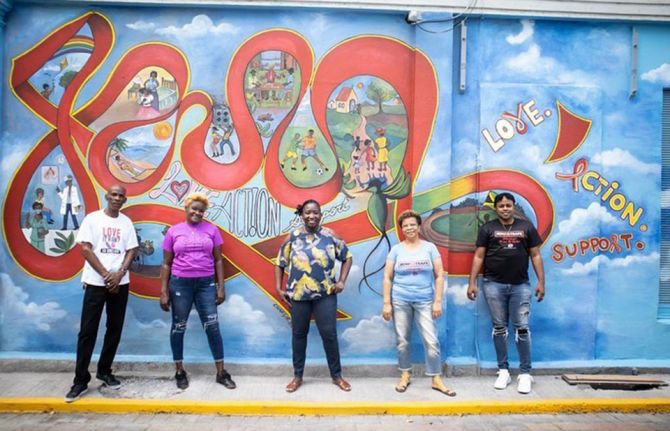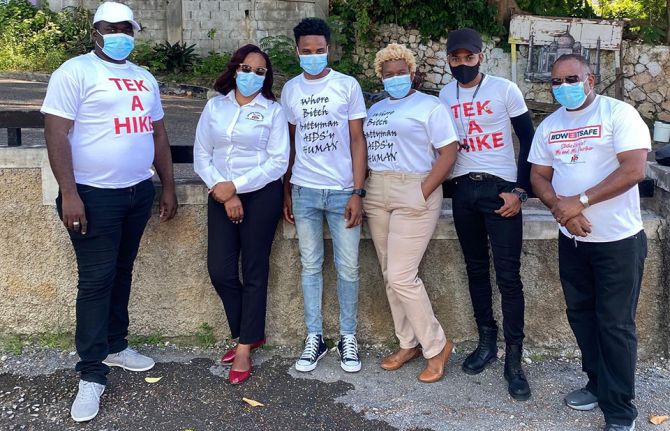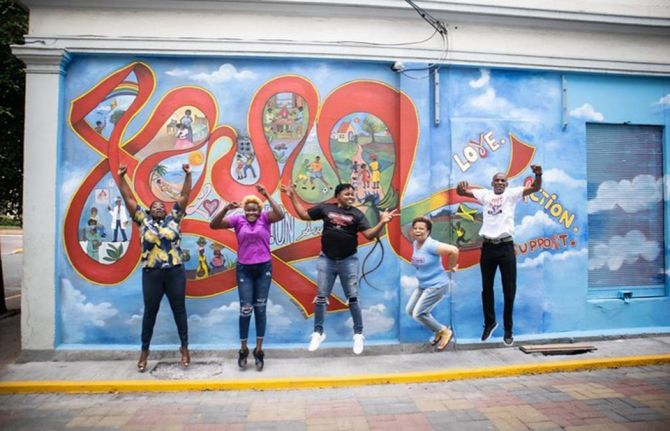



Feature Story
The case for anti-discrimination legislation in Jamaica
01 March 2022
01 March 2022 01 March 2022Michael James (not his real name) was shell-shocked when he was fired. He scanned the dismissal letter. It cited his performance and tardiness as reasons for the job loss. But years of performance appraisals told a different story. He’d consistently received positive evaluations and there were no memos about late-coming or substandard work on his file. The only reason he could discern was that colleagues recently learned that he was living with HIV.
HIV-related prejudice remains rife in Jamaica. One third of people living with HIV responding to the 2020 Jamaica People Living with HIV Stigma Index reported experiencing stigma and discrimination. Verbal harassment, gossip and discriminatory remarks were the most common violations. But one in 10 said they were refused employment or lost a source of income because of their HIV status. No legislation prohibits a Jamaican employer from discriminating on the basis of HIV status.
This has marked implications for the HIV response. Twenty-one per cent of respondents were worried about mistreatment or confidentiality breaches by health-care workers. Thirty-eight per cent delayed testing and 29% delayed starting treatment because of concerns about how they would be treated.
Shelly John (not her real name) recounts hopping from one treatment site to another before landing at Jamaica AIDS Support for Life. At other facilities she overheard nurses gossiping about patients’ medical histories.
“I felt uncomfortable. If I am hearing about other clients, other clients can come inside and hear about me as well,” she reasoned.
“The fear of stigma drives some persons underground and away from much needed health services. Owing to stigma and discrimination, some persons delay accessing needed services and, as a result, some are diagnosed with HIV at an advanced stage,” acknowledged State Minister in the Health and Wellness Ministry and Chair of the Jamaica Partnership to Eliminate HIV-Related Stigma and Discrimination, Juliet Cuthbert Flynn.
Jamaica’s testing and treatment outcomes bear this out. While an estimated 86% of people living with HIV were aware of their status in 2020, just 40% of people living with HIV were on HIV treatment.
While the Jamaica Charter of Fundamental Rights and Freedom guarantees protection against discrimination, it is limited in scope. The protected grounds are race, sex, place of origin, social class, colour, religion and political opinions. There are piecemeal anti-discrimination provisions in different pieces of legislation, such as the 2014 Disabilities Act and the 1975 Employment Act. But neither the constitution nor ordinary legislation make discrimination on other grounds unlawful.
Since 2020, UNAIDS and the United Nations Development Programme have been providing technical and financial support to local nongovernmental organizations, including Jamaica AIDS Support for Life, to support the rollout of a national survey on the public’s perspectives and experiences with stigma and discrimination in Jamaica and on the need to have more adequate protections in the law. The results of the survey will be used to advocate for legislation to adequately deal with discrimination experienced by vulnerable and marginalized groups.
The proposed legislation should provide protection across areas including discrimination based on health status, pregnancy or childbirth, hiring or termination decisions and the denial of services to minority groups. It should also address discriminatory conduct based on assumptions about a person’s competence, capabilities, age, self-expression, income level, the neighbourhood in which they live or their educational background.
“Comprehensive anti-discrimination legislation will strengthen the legal framework for the protection of human rights towards achieving equality for all,” Manoela Manova, the UNAIDS Country Director for Jamaica, explained.
In real terms, this means that duty-bearers will have to consider how their policies, programmes and services will affect people with the protected characteristics. Critically, the focus on markers related to poverty would mean that for the first time public bodies will have a duty to consider socioeconomic disadvantage when making strategic decisions about how to exercise their functions and when proposing to use public funds.
“Our overarching finding has been that regardless of health status, sex, age or sexual orientation, the factor that fuels discrimination and makes people more vulnerable is poverty. Moving forward, it is critical that we don’t treat HIV as a stand-alone concern but address the full picture of what makes people marginalized and vulnerable in Jamaica,” said UNAIDS Community Support Adviser for Jamaica, Ruben Pages Ramos.



